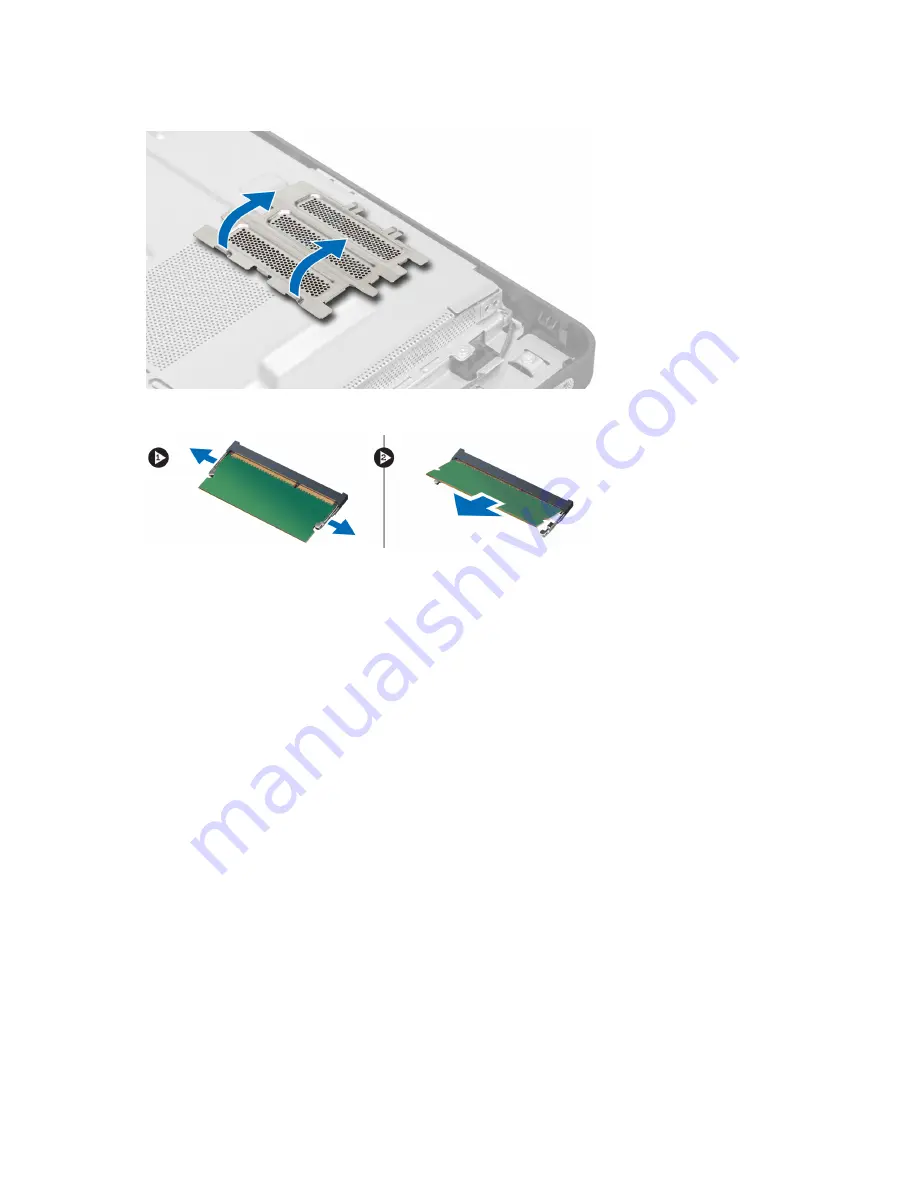
3.
Lift the memory shield outwards.
4.
Pry the retention clips away from the memory module until it pops up. Lift and remove the memory module from its
connector.
Installing the Memory
1.
Align the notch on the memory-card with the tab in the system-board connector.
2.
Press down on the memory module until the release tabs spring back to secure them in place.
3.
Place the memory shield back into its place.
4.
Install the:
a) back cover
b) VESA stand
5.
Follow the procedures in
After Working Inside Your Computer
.
Removing the VESA Mount Bracket
1.
Follow the procedures in
Before Working Inside Your Computer
.
2.
Remove the:
a) VESA stand
b) back cover
3.
Remove the screws that secure the VESA mount bracket to the computer. Lift the bracket away from the computer.
10
Summary of Contents for OptiPlex 9010 AIO
Page 1: ...Dell OptiPlex 9010 All In One Owner s Manual Regulatory Model W04C Regulatory Type W04C001 ...
Page 50: ...50 ...
Page 52: ...52 ...
Page 58: ...58 ...











































